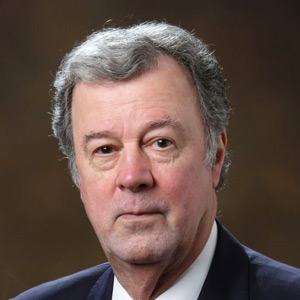I came across an answer to this question the other day by Uwe Reinhardt at The New York Times economics blog. Professor Reinhardt tells us that “regulations are usually a legitimate response to mischievous games played by some parties in the private sector.”
If you’re not an economist, that statement may not strike you as especially odd. After all that’s what you would likely hear in just about any garden variety history class. Or sociology class. Or political science class. But then again, most historians, sociologists and political scientists have never mastered even rudimentary economics.
To understand economic regulation one must turn first to people with a bit more knowledge. Interestingly, the father of economics, Adam Smith, devoted a good bit of his treatise, An Inquiry into the Nature and Cause of the Wealth of Nations, to the subject of regulation of economic activity. Smith observed that the vast majority of government regulations serve no useful social purpose at all.
Far from protecting consumers, most government intervention in Smith’s day was designed to protect producers and other special interests. They served the interests not of buyers of goods and services, but of the sellers. Further, society would be much better off if these laws were simply repealed.
What about the modern era? It’s amazing how little things have changed.
Hollywood depicts the downside of regulation.
As Gabriel Kolko (one of the few historians who did understand regulatory economics) wrote in The Triumph of Conservatism, every major regulatory agency established in the Progressive era was established at the request of the regulated industry. There were consumer complaints of course. But the design and thrust of regulation primarily served the interests of the producers, not the consumers. This was also generally true of the whole slew of regulatory agencies created during the New Deal.
The first meat inspection law was designed to squelch competition and serve the interests of the large meat packers. The Interstate Commerce Commission mainly served as a cartel agent for the railroads and had the primary goal of making the railroads profitable. Trucking regulation was designed for the benefit of truckers. Airline regulation for the benefit of airlines. Agriculture regulation for the benefit of farmers. Franklin Roosevelt’s National Industrial Recovery Act allowed producers in every industry to set up a cartel backed by the force of law, until it was mercifully declared unconstitutional by the Supreme Court.
At the state and local level, one out of every three jobs now requires a license. Yet for the most part, regulation of the professions appears little different from the medieval guild system that Adam Smith criticized more than 200 years ago. As Milton Friedman pointed out in Capitalism and Freedom, there seems to be no legitimate justification for any of this. Perhaps there is a role for government as a certifier, but not generally as a regulator. Let the government inform you that I have no skills at barbering. But having done that, there seems to be no good reason to prohibit me from putting a bowl over your head and clipping around the rim.
While promoting a naïve “public good” explanation for regulation, Reinhardt acknowledges that there are special interest pressures. But he treats these as distractions, when in fact they are the main event. Virtually all interests are special interests, including consumers. There are no general interest lobbies. There are no general interest PACs. There is no organized group pushing for what economists call Pareto optimality. So why would you be surprised to learn that we don’t have it?
Health care, by the way, is no exception to the general rule. As I pointed out years ago in Regulation of Medical Care, most regulation of medical care is pernicious. Almost none of it is designed to protect the patient and it makes costs higher, quality lower and access more difficult than would otherwise have been the case.
Here is the latest example of misguided health care regulation and here is a brilliant post by Bryan Caplan pointing out that life’s most serious problems are not regulated at all, including (to use Uwe Reinhardt’s term) the most “mischievous” behavior.
Most irritating of all, however, is professor Reinhardt’s practice of trying to explain regulation by the use of totally baseless (and theory-less) claims while completely ignoring a real theory of regulation that I have offered to readers on more than one occasion.










